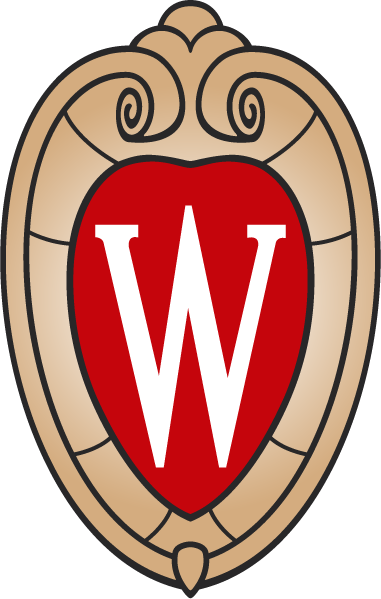
Course Overview
This course introduces non-engineers to the core principles and practices of municipal engineering, with a focus on real-world applications in street design, water supply, sanitary sewer, and stormwater systems. Participants will learn how public works engineers approach planning, design, and maintenance, and how to ask the right questions to ensure successful infrastructure outcomes. Whether you're in planning, finance, management, or public service, this course will help you better understand the systems that keep communities running.
Learning Outcomes
- Understand the basic engineering concepts behind municipal infrastructure systems including streets, water, sewer, and storm drainage.
- Learn how to interpret design considerations, regulatory requirements, and maintenance strategies used by public works professionals.
- Gain the confidence to collaborate effectively with engineers and contractors on infrastructure projects.
Who Should Attend?
- Planners, city managers, and elected officials involved in infrastructure decision-making.
- Finance officers, maintenance supervisors, and public works staff preparing for expanded responsibilities.
- Individuals enrolled in the Public Works Management Institute (PWMI) or anyone seeking a foundational understanding of municipal systems.
Course Outline
Online Course Modules Starting May 10th
Pre-course Activity
- Overview of the Course
- Overview of the Municipal Engineering Function
- What is unique about municipal engineering?
- What are the challenges of designing municipal infrastructure systems?
- What tools and standards are used by municipal engineers?
Session 1 Friday May 10, 2024 - Street Design, Maintenance and Rehabilitation
- Soils, water, and pavement thickness design
- Pavement management
- Preventive maintenance and rehabilitation
- Estimating and Bidding
Session 2 Wednesday May 15, 2024 - Street Planning and Traffic Engineering
- Planning and functional classification systems
- Urban vs. rural roadway geometric standards
- Intersections and sidewalks
- Traffic engineering and operation
- Traffic engineering studies
Session 3 Friday May 17, 2024 - Storm Drainage
- Catch Basins & Inlets
- Regulatory considerations
- Combined Sewers
- Stormwater Quality
- BMP’s & BMP Application
Session 4 Wednesday May 22, 2024 - Water Systems
- Water Supply
- Water Treatment
- Water Demand and Water System Sizing
- Water Distribution System
Session 5 Wednesday May 29, 2024 - Sanitary Sewers and Waste Treatment
- Projecting System Capacity
- Collection System
- Treatment Techniques
- Treatment Plant Design
In-person outline: (Not Scheduled at this time)
Day 1
Overview of the Municipal Engineering Function
- What is unique about municipal engineering?
- What are the challenges of designing municipal infrastructure systems?
- What tools and standards are used by municipal engineers?
Street Planning, Design, and Maintenance
- Planning and functional classification systems
- Urban vs. rural roadway geometric standards
- Intersections and sidewalks
- Soils, water, and pavement thickness design
- Pavement management systems
- Preventive maintenance and rehabilitation
- Traffic engineering and operation
- Traffic engineering studies
- Understanding a civil engineering plan set
Water Supply Systems
- Projecting water system demand
- Calculating average demand
- Estimating peak demand
- Accommodating fire flows
Water Distribution
- Water mains
- Water storage requirements
- Metering and water loss
- Valves and hydrants
- Testing
Water Treatment - Groundwater and Surface Water
- Physical and chemical processes
- Hardness and softening
- Filtration and disinfection
Day 2
Sanitary Sewerage Systems
- Projecting system capacity
- Sewer collection systems
- Design parameters
- Materials
- Maintenance
- Treatment Plant Considerations
- Hydraulic and waste loadings
- Phosphorous and nitrogen
- Special loadings
- Treatment processes:
- Primary
- Secondary
- Tertiary
Stormwater Drainage and Control Systems
- Why we manage stormwater
- Understanding rainfall and runoff, and the “Rational Formula”
- Drainage system design
- Catch basins and inlets
- Flood control: detention, flow control, and regional approaches,
- Water quality: EPA, NPDES, and MS4s
- Combined sewers
- Stormwater best management practices (BMPs) and sustainability
Instructor
Benjamin Jordan
Benjamin J. Jordan, PE, is a program director with Interdisciplinary Professional Programs in the transportation sector. He has over 35 years of experience in civil engineering and public works. He earned a Bachelor of Science Degree in Civil Engineering from the University of Illinois at Urbana–Champaign and a Master of Public Affairs degree with a Certificate in Public Management from the University of Missouri-Columbia. He is a Licensed Professional Engineer in the State of Illinois.
Take this course when it’s offered next!
Past dates
Municipal Engineering Fundamentals for Non-Engineers
Course #: RA00356Municipal Engineering Fundamentals for Non-Engineers
Date: Fri. May 10, 2024 – Wed. May 29, 2024ID: RA00356-D273
interpro.wisc.edu/RA00356
Fee:
- $995
-
Fee covers live online instructions and materials.
- CEU: 1.5
- PDH: 15
Municipal Engineering Fundamentals for Non-Engineers
Date: Tue. November 14, 2023 – Wed. November 15, 2023ID: RA00356-D105
interpro.wisc.edu/RA00356
Fee:
- $995
-
Fee covers live online course instruction via Zoom with Net-ID and course materials.
- CEU: 1.5
- PDH: 15
One West Dayton Street
Madison, WI 53703
